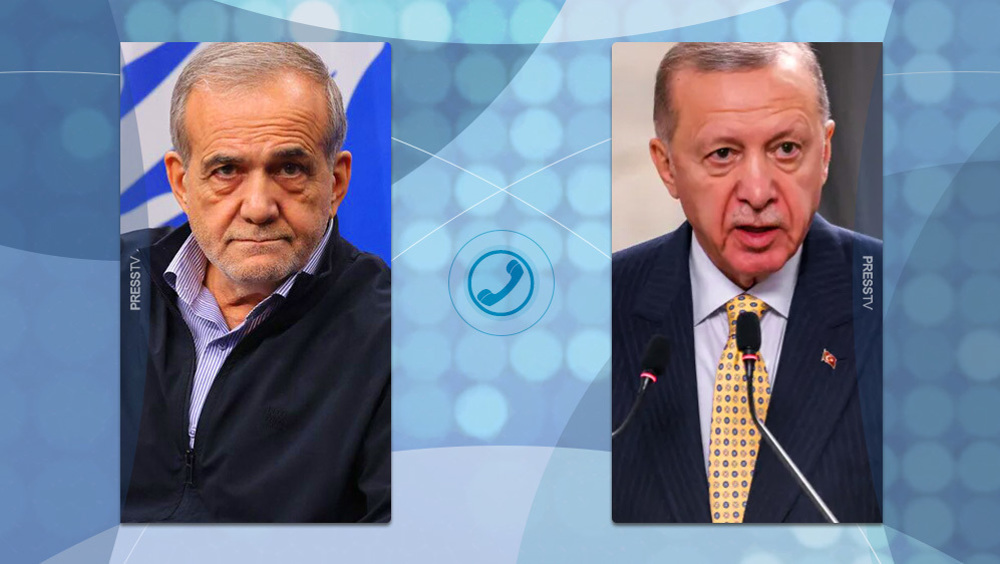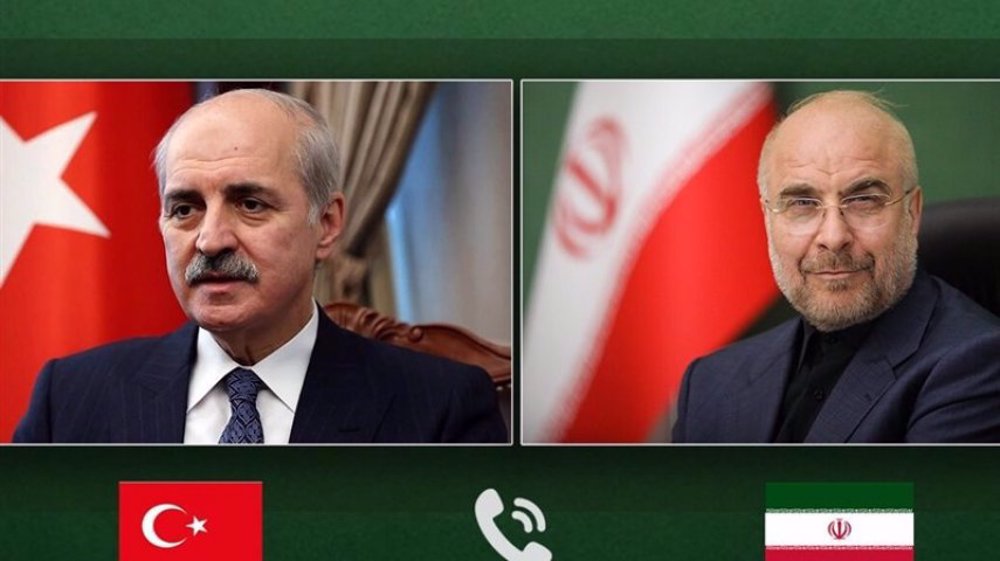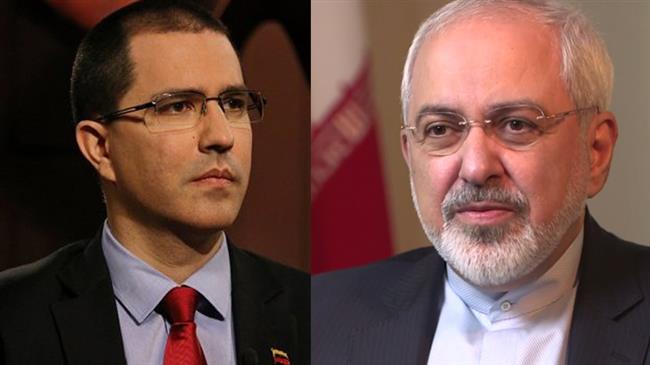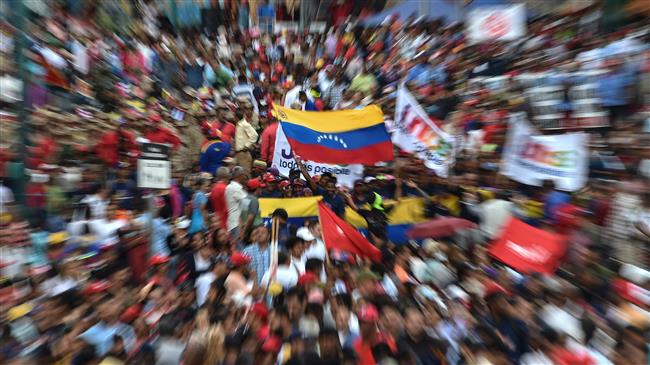Turkey warns against foreign meddling in Venezuela’s affairs
Turkey says those countries that have recognized Venezuela’s self-proclaimed “interim president” Juan Guaido are worsening the Latin American country’s problems.
“There is a problem in a country. There is a spark that can turn into a fire at any moment. In this case, they should have contributed to the solution of the problem through dialog,” said Turkish Foreign Minister Mevlut Cavusoglu at a press conference in Istanbul on Sunday, referring to the countries that have recognized Guaido.
“But is that how they handled things? No! On the contrary, the event was fueled from the outside. The people of Venezuela are being punished by such an approach,” he added.
The top Turkish diplomat said Ankara had tried to initiate talks regarding Venezuela last year between Washington and Latin American nations. “But today, none of the countries that have taken these steps against Venezuela has sought dialog.”
On Friday, Cavusoglu warned that if foreign interference continued in Venezuela, it could drag the country “into a civil war.”
Venezuela has been in political turmoil in the past couple of months, with the opposition blaming Venezuelan President Nicolas Maduro over an ailing economy, hyperinflation, power cuts, and shortages of basic items.
Political crisis deepened in Venezuela on January 23, when opposition figure Guaido, a lawmaker who leads the defunct National Assembly, proclaimed himself the “interim president” of the country. United States President Donald Trump was quick in officially recognizing him as such.
Venezuela’s National Assembly is not recognized by the Venezuelan state, which has given legislative powers to another body, the Constituent Assembly.
The White House has called on other countries to follow suit in recognizing Guaido. It has further placed tough sanctions against Venezuela’s state-owned oil firm PDVSA and certified the authority of Guaido to control certain Venezuelan assets held by the Federal Reserve Bank of New York or any other US-insured banks.
Furthermore, the European Parliament on Thursday approved a resolution through which it recognized the 35-year-old Guaido as the “interim president” of his country, calling on the member states of the European Union (EU) to support the opposition figure until a “free, transparent and credible” presidential election can be held.
EU members Britain, Germany, France, and Spain had given an eight-day ultimatum to Caracas on January 26 to hold a new election or see Europe recognize Guaido. Caracas rejected the ultimatum, describing it as “childlike.”
Canada and a number of right-leaning Latin American countries have also offered official recognition to Guaido.
However, other countries, including Russia, China, and Iran, have expressed support for the elected government in Venezuela and condemned outside interference in the country. Turkey, which has boosted economic and political ties with Venezuela, is also among the countries that has strongly supported the legitimate government in Caracas.
Last month, President Recep Tayyip Erdogan called Maduro to urge him to stand firm against “anti-democratic developments.”
On Saturday, tens of thousands of Maduro’s supporters and opponents staged rival rallies in Caracas. Pro-government demonstrators converged in the western side of the capital to mark the 20th anniversary of the Bolivarian revolution and the rise to power of the late President Hugo Chavez.
Addressing his supporters, Maduro, 56, agreed to hold parliamentary elections earlier than planned but reiterated the legitimacy of his presidency and his government amid mounting Western pressure for him to step down.
“They want to bring forward elections, let’s have elections,” Maduro said, adding that he was “very ashamed to see this group of opposition coup perpetrators” taking orders from Washington.
Maduro was sworn in for a second term on January 10, after a vote that faced an opposition boycott and allegations of vote-rigging, which the government has denied.
The Venezuelan government has said Guaido’s self-proclamation and the foreign governments’ recognition of that arbitrary status constitutes a “coup.”
US systematically paralyzing international institutions, Iran tells APA session
Iranian Embassy condemns Israeli airstrikes in southern Lebanon
10 foreign spy agencies involved in plot to destabilize Iran: IRGC intelligence
VIDEO | Gazans pay tribute to Palestinian artists killed by Israel, honor their families
Minneapolis murders by ICE – backed by Trump – push US to the brink as protests intensify
Zelensky claims US security pact '100% ready' as war continues
Lebanese journalist targeted for exposing President Aoun’s pro-US, anti-resistance agenda
Wave of Israeli attacks target southern Lebanon in latest ceasefire violation



















 This makes it easy to access the Press TV website
This makes it easy to access the Press TV website